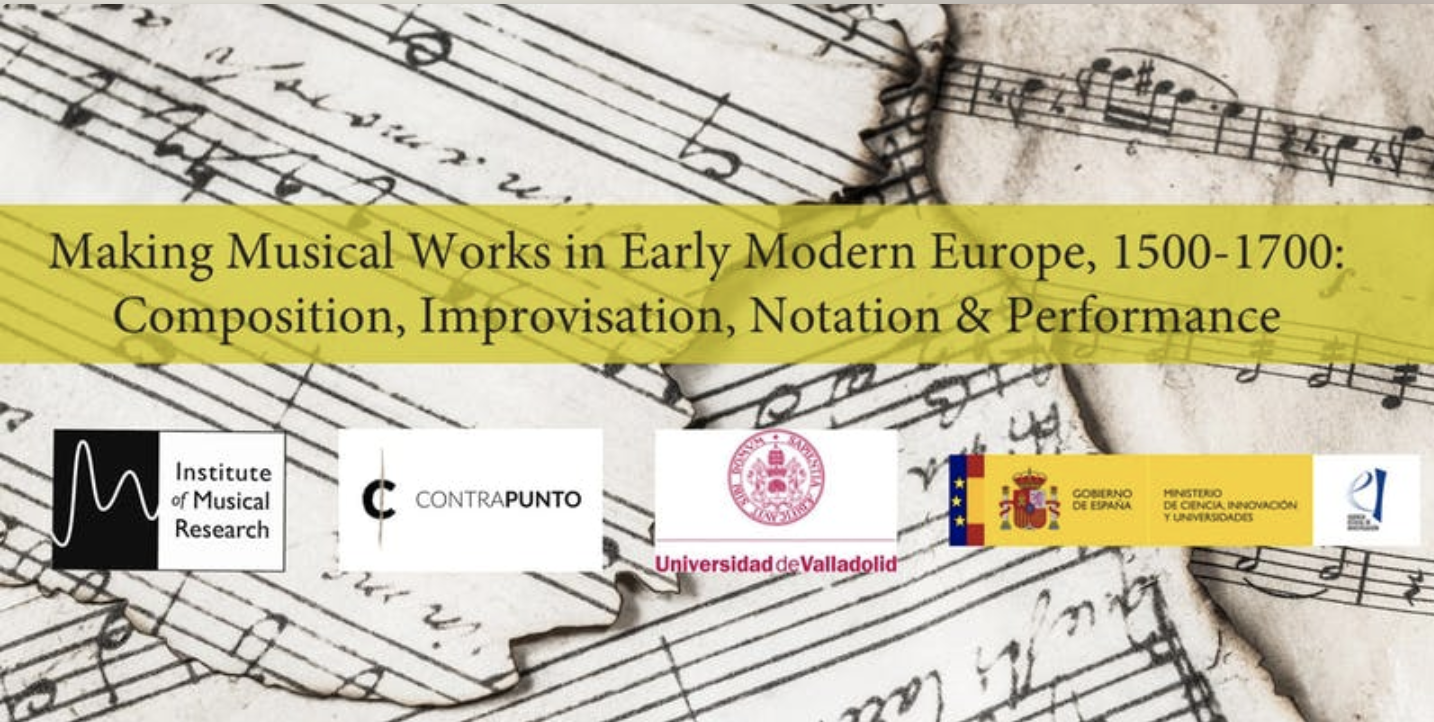Making Musical Works in Early Modern Europe, 1500-1700: Composition, Improvisation, Notation & Performance
june 27, 2019

The Institute of Musical Research, Senate House (London), in collaboration with the Project “The Renaissance Musical Work: Foundations, Repertories and Practices” coordinated by Soterraña Aguirre Rincón from the University of Valladolid, and funded by the Spanish Ministry of Innovation, Science and Universities [HAR2015-70181-P], presents the following session:
Thursday 27 June 2019
Keynote Speaker
Kate van Orden, Harvard University
Convenors Manuel del Sol, University of Valladolid
David Lee, University of Glasgow
Stephen Rose, Royal Holloway, University of London
Lydia Goehr’s The Imaginary Museum of Musical Works (1992) prompted heated discussions about how far the term and concept of the ‘musical work’ is appropriate for musical cultures of the 16th and 17th centuries. Whereas earlier discussions had focused on ontological issues and on theoretical treatises of the period, Goehr sought to provide what she termed a ‘historical’ approach, yet she was much criticised for her relatively unnuanced account of music history prior to 1750. Now, some twenty-six years on, the notion of ‘work’ is ripe for exploration from a much broader range of disciplinary perspectives including book history, performance studies, the study of historical improvisation, and economic ethnomusicology. Attributes usually associated with a musical work (such as notational fixity or durability in the repertory) need to be revised, in light of the increasing awareness of the importance of oral and memory-based cultures in the 16th and 17th centuries, as well as an increasingly nuanced understanding of the symbolic and practical functions of notated sources.
Rather than traditional 20-minute papers, the convenors invite contributions to plenary sessions and round-table discussions relating to several key themes, including the various meanings of the terms ‘composition’, ‘improvisation’ and ‘work’ in the 16th and 17th centuries.
We invite participation from perspectives that may include:
- Perspectives from book history on the musical work as notated opus
- Perspectives from economic ethnomusicology on the ‘work’ as a form of labour
- Perspectives from performance studies on ‘work’ within an oral culture of memorisation and improvisation
- Musical works and early modern notions of the musical author
- The relationship between the ephemeral and the durable, and its implications for the work as a form of social capital
- The implications for modern editorial practices
Place: Room 104, South Block Senate House, Malet Street, University of London, London, WC1E 7HU, United Kingdom


